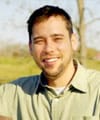Lisa Ballard is a born problem solver. Show her a tough math problem or complex computer question and she’ll have the solution. Need help planning a wholesome meal that heals the body, she’s got a plan. Bring her someone struggling with addiction, trauma or other mental health issues, and she’ll evaluate the whole person until she comes up with the ideal blend of treatments for their specific needs. Lisa’s knack for problem-solving has led her down seemingly divergent career paths, all of which converged in her role as therapist at The Ranch. After earning two undergraduate degrees in math and computer science, Lisa spent a number of years working in computer systems. Then life stepped in and changed her course. She got married and had a child, which sparked a passion for health and wellness. What began as an appreciation for whole foods and vegetarian cooking turned into a career as a personal chef. Venturing further into the healing arts, Lisa started exploring the human energy system and its effect on the mind and body. She became a Reiki master and trained in Reconnective Healing®. After her energy work sessions, clients frequently had questions about the insights and issues that would come up during the process. “It became clear that there was an important psychological component to energy work,” Lisa says. “And though I was naturally adept at handling these questions, it stirred a desire in me to learn more about the human psyche and the origins of human behavior.” Treating the Whole Person Inspired by her experiences in energy work, Lisa went back to school for a master’s in counseling. When one of her energy work clients mentioned getting treatment at The Ranch, she was excited to learn about a program that matched her holistic approach. “I was drawn to The Ranch because they use cutting-edge therapies that produce real results,” Lisa says. “The staff is so diverse, each individual brings unique skills and approaches to the team and we work together like a family which provides a more comprehensive approach to addressing client problems.” The fact that The Ranch treats addictions and trauma particularly appealed to Lisa. “I know firsthand the way addiction affects both individuals and families. It is not a choice or a matter of willpower. The addict cannot just stop using,” she explains. “At The Ranch, I have the opportunity to be of service to others who are struggling with the same issues I grew up with in my own family.” Today, as a primary therapist at The Ranch, Lisa continues to use concepts from energy work, her knowledge of nutrition and her passion for treating addiction to help clients heal. Early on in treatment, she works with clients to get out of their minds and into their bodies. “When the brain is overused, as is often the case in addiction, feelings end up being minimized or denied,” she explains. “As long as someone is running from their feelings, they’ll need something to medicate them, whether that’s drugs, food, gambling, sex or any other high-intensity activity.” As part of her holistic approach, Lisa works with her clients to evaluate every aspect of their lives, including their family, career, past traumas, and diet and exercise habits to create a treatment plan tailored to their needs. As a therapist at River House, she has worked with male clients of all ages, ranging from 18 to 72, who struggle with addictions, depression, anxiety, disordered eating behaviors, personality disorders and other issues. Instead of bouncing from one extreme to another, Lisa helps her clients find balance in every area of their lives. Family Ties Promote Recovery Every week, Lisa leads individual and group therapy sessions, as well as family sessions that use boundaries and communication to help families achieve their goals. Whereas some therapists focus on issues from the past, Lisa asks clients to decide where they want to go from here. Some clients leave treatment with a written family contract in place, delineating the client’s commitment to their recovery and their family. “Relationships are a key component of what keeps people in recovery,” Lisa says. “Family sessions and an immensely healing family weekend start the process, and then families receive support to continue fostering their newfound intimacy after treatment ends.” In her work with individuals and families, Lisa calls upon whatever approach is needed in the moment. She works with anger management and rage release, psychodrama, and psychoeducation, among other approaches, and believes strongly in the power of the group to provide honest feedback and hold one another accountable. “I believe in confronting the disease, not the person,” she says. “My primary goal is to help clients achieve balance by drawing out the authentic self and diminishing the addicted self.” A Sense of Community For the men at River House, the sense of community they develop is an important part of the therapeutic experience, Lisa says. Together, they live in the same house, do chores and build friendships with other men. For many, this is the first time they’re learning that it’s healthy to feel and share their emotions. The Ranch is an ideal setting for men to delve into the deep core issues preventing them from living the life they want. They spend time outdoors, go on hikes, and participate in team-building activities and experiential therapies such as equine therapy and adventure therapy that allow them to get active and build positive self-esteem. “The Ranch is a powerful place for men,” Lisa says. “They conquer challenges they didn’t think they could overcome, both emotional and physical, and then help each other succeed. With the support of their ‘team,’ they become confident in their ability to change all the things that haven’t been working in their lives.”



